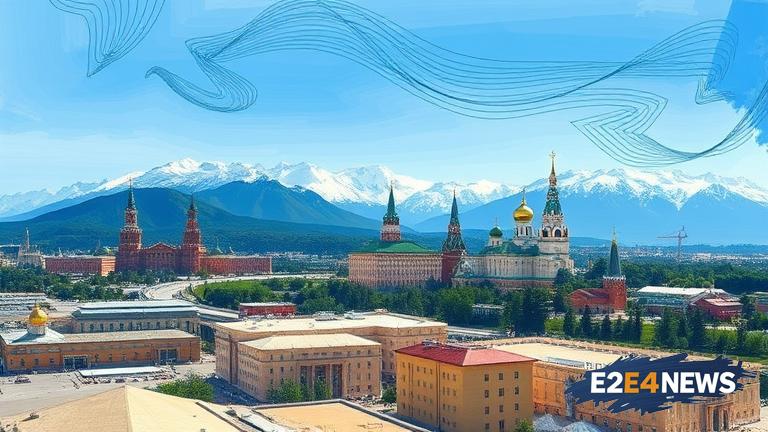Russia’s economy has been experiencing a period of significant turmoil in recent years, with the country facing a range of challenges that have impacted its growth and development. One of the main challenges facing Russia is the imposition of sanctions by Western countries, which have limited the country’s access to international markets and restricted its ability to attract foreign investment. Additionally, the decline in oil prices has had a major impact on Russia’s economy, as the country is heavily reliant on oil exports to generate revenue. Despite these challenges, Russia is also exploring new opportunities for growth and development, including the development of its agricultural sector and the expansion of its trade relationships with other countries. The Russian government has implemented a range of policies aimed at supporting the economy, including measures to increase investment in key sectors such as manufacturing and infrastructure. The government has also taken steps to reduce the country’s reliance on oil exports, including the development of new industries such as technology and tourism. Furthermore, Russia has been actively engaged in international trade negotiations, including the development of the Eurasian Economic Union, which aims to create a single market for goods and services across the region. The country has also been seeking to strengthen its trade relationships with other countries, including China and India, as part of its efforts to reduce its reliance on Western markets. In terms of its economic performance, Russia’s GDP has been growing at a slow pace in recent years, with the country experiencing a recession in 2020 due to the impact of the COVID-19 pandemic. However, the economy has been showing signs of recovery, with growth expected to pick up in the coming years. The Russian government has also been taking steps to support the country’s businesses, including the provision of financial support and the implementation of measures to simplify the regulatory environment. Additionally, the government has been investing in key infrastructure projects, including the development of new transportation networks and the expansion of the country’s energy sector. Despite the challenges facing the economy, Russia remains a significant player in the global economy, with the country possessing a range of natural resources, including oil, gas, and minerals. The country is also home to a highly skilled workforce, with a strong tradition of innovation and entrepreneurship. In terms of its trade relationships, Russia is a member of the World Trade Organization and has trade agreements with a range of countries, including the European Union and the United States. However, the country’s trade relationships have been impacted by the imposition of sanctions, which have limited its access to international markets. Looking to the future, Russia is expected to continue to face significant challenges, including the ongoing impact of sanctions and the need to diversify its economy. However, the country is also expected to continue to explore new opportunities for growth and development, including the expansion of its trade relationships and the development of new industries. Overall, Russia’s economic landscape is complex and multifaceted, with the country facing a range of challenges and opportunities. While the imposition of sanctions and the decline in oil prices have had a significant impact on the economy, the country is also exploring new opportunities for growth and development, including the development of its agricultural sector and the expansion of its trade relationships. As the country continues to navigate the challenges and opportunities of the global economy, it is likely that Russia will remain a significant player in the international economic landscape.





